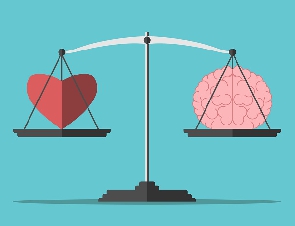Ghana has over the years initiated several Educational Reforms aimed at finding lasting solutions to problems concerning education in the country. For example, the number of years a student is supposed to spend in the second cycle institution has not been permanent.
In recent times however, the debate on reforms in this sector has been rife with the two major political parties taking swipes at each other as to the best possible ways of implementing the much needed reforms that addresses the quality of the educational system.
As a way of enriching the debate, one critical area we need to highlight is Emotional Intelligence – developing a curriculum that includes EI at all levels of our educational system.
Emotional intelligence according to experts is defined as the ability to understand and manage your own emotions, as well as recognize and influence the emotions of those around you. The term was first coined in 1990 by researchers John Mayer and Peter Salovey, but was later popularized by psychologist Daniel Goleman. Goleman makes very strong claims regarding the predictive value of his model of EI. He claims that his model will predict success at home, at school, and in the workplace. He reports that individuals who are emotionally intelligent will have “an advantage in any domain in life, whether in romance and intimate relationships or picking up the unspoken rules that govern success in organizational politics”. He further claims that his model of EI “can be as powerful, and at times, more powerful than IQ” at predicting life success. In 2002, UNESCO launched an international campaign to promote emotional learning in the classroom. The U.N. body sent a statement of 10 basic EI principles to education ministries throughout the world. Those principles drew heavily from Goleman’s exposition of emotional intelligence. As a result, some schools around the world particularly in the US currently incorporate “social and emotional learning” in their curricula.
The subject areas traditionally taught in school (languages, humanities, natural sciences, mathematics, technology, the arts, religious and physical education) are required by universities and are still relevant. However, there is increasing understanding that new areas of knowledge, competences, and behaviours need to be integrated into curricula if young people are going to function well in an increasingly complex global society. In the future, they may be faced with enormous challenges associated with poverty, overpopulation, and declining bio-capacity.
Due to this evolution, education may benefit from understanding how to go beyond traditional academic content. Goleman’s theory which incorporate five essential elements of emotional intelligence offers hope. The first area is ‘knowing one’s emotions’ and encompasses such skills as recognizing one’s feelings and monitoring one’s feelings. The second area is ‘managing emotions’ and includes skills such as appropriately regulating one’s feelings, ability to self-sooth, and ability to modulate unpleasant feelings. The third area is ‘motivating oneself’ and is comprised of skills such as delaying gratification and resisting impulses. The fourth area is ‘recognizing emotions in others’ and encompasses such skills as empathy and understanding what others need or want. The fifth area is ‘handling relationships’ and includes skills such as successfully interacting with others and managing others emotions.
These five essential elements of emotional intelligence are particularly significant in the present world’s educational climate where stability, predictability, and continuity are no longer guaranteed. On the contrary, young people are entering a volatile, unpredictable, complex, and ambiguous world.
There are very practical reasons to promote social and emotional learning in our schools, from kindergarten through university. According to Goleman, bullying, disciplinary problems, violence and drug abuse are reduced in schools with a high EI. With a solid basis in emotional intelligence, academic performance — as well as behavior — improves. There is an obvious connection to Goleman’s third, motivational component: learning stimulates curiosity and promotes feelings of satisfaction, even joy, when students immerse themselves in the process of assimilating new information.
According to an article by Harvard Business Review, what makes a leader written by Daniel Goleman emotional intelligence accounts for nearly 90 percent of what sets high performers apart from peers with similar technical skills and knowledge. Also 71 percent of employers surveyed by CareerBuilder a job recruiting firm said they value EI over IQ, reporting that employees with high emotional intelligence are more likely to stay calm under pressure, resolve conflict effectively, and respond to co-workers with empathy.
Opinions of Tuesday, 25 August 2020
Columnist: Setor Y. Nyadroh















